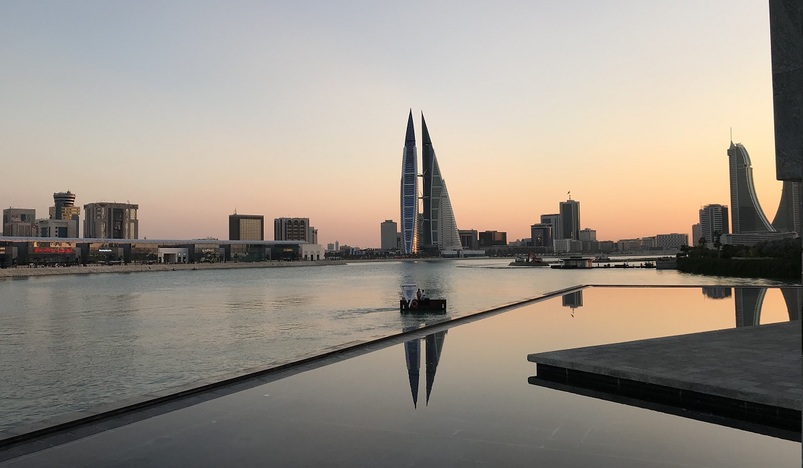
Bahrain's Economy
Bahrain could have suffered a severe economic blow if it had been subject to an economic blockade by its biggest neighbors. The country has done relatively well in the last year. According to government data, Bahrain's economy contracted 3.9% in its fourth quarter of 2020 compared to the same time in 2019. Economic activity decreased by 0.5% in the fourth quarter compared to the third quarter.
According to the Institute of International Finance, Bahrain will make a strong economic recovery after the pandemic, due to the limited impact of COVID-19 on the health of the population, the rapid pace of immunization programs, and improving economic conditions in the region.
Although some sectors of business, including tourism, hospitality, and transport, were severely affected by travel restrictions and gatherings, overall recovery has been helped by the continued vaccination rollout and economic management.
Bahrain announced a QR75bn ($20.5bn), stimulus package in March 2020 to support its economy during the pandemic. It also extended the moratorium on loan repayments until September, giving businesses more time to recover from the effects of the pandemic.
Bahrain has just over three million inhabitants and is one of the wealthiest countries in the world per capita. The sovereign wealth fund, Bahrain Investment Authority, manages more than $300bn assets. We will cover the major sectors of the country that are expected to observe drastic changes in the upcoming years.
Liquefied natural gas (LNG)
Bahrain is consolidating its position as the second-largest exporter of gas and the largest exporter of LNG, thanks to its vast reserves and growing global demand. Bahrain Petroleum (QP), announced in February its decision to invest $29 billion in the expansion of its North Field. QP will be able to increase its annual production capacity by 77 million to 110 million tons of LNG. Bahrain's LNG long-term contracts are tied to crude oil prices. An increase in gas production would reduce the fiscal and external breakeven oil price from $50/bbl in 2020 down to $30/bbl 2025.
Corporate Bonds
International investors have responded strongly to Bahrain's corporate bonds, especially considering the strength of Bahrain's domestic economy. Global investors have deemed Bahrain's strong fiscal buffers as well as its reform programs to be positive. We can notice the growing number of companies on the list of best Forex brokers online to start offering corporate bonds as tradable assets due to increasing demand for them. According to the QFC's latest Capital Market Report, Bahraini Corporates have the opportunity to raise cheap debt in dollars to finance Mergers and Acquisitions transactions.
Ahlibank Bahrain's five-year bond with a coupon rate of 1.875% was significantly oversubscribed in 2020 by orders from more than 122 investors across Europe, Asia, and the UK. QNB's first green benchmark bond issuance, and the first-ever green bond issued by Bahraini banks, was released last year. It was also highly oversubscribed.
Banking sector
The bank system has remained resilient thanks to sound liquidity and initial capital, as well as a flexible response by QCB including regulatory forbearance. To sustain corporate credit, financial support programs are crucial. The QCB has kept lending rates low and provided liquidity to local banks via a special window at a zero interest rate. The QCB is avoiding a premature end to these measures due to the lingering effects of the pandemic.
These measures encourage banks to delay loan repayments, which can mask the extent of bank asset quality decline. The end of the rift between Saudi Arabia and the UAE will help improve liquidity and funding this year. This should reduce funding costs and diversify the funding base for Bahraini banks. Bahraini banks are heavily dependent on deposits from non-residents, which accounted for 28% of total deposits as of March 2021.
Fiscal and external positions
Bahrain's fiscal deficit in 2020 was only 2.4% of its GDP. It is the lowest in the MENA Region. In 2021, Bahrain will likely have a surplus of 2.5% of its GDP.
As non-hydrocarbon revenues rise, fiscal balance will shift to large sur-pluses. This will more than offset the modest increase in spending. Due to the fall in nominal GDP, central government debt rose to 70% of GDP in 2020. Net public sector wealth would be preserved if there is a gradual fiscal consolidation after 2021.
The GDP growth will be supported by the substantial increase in natural gas production as well as the recovery in energy prices. Public foreign assets (official reserve + foreign assets of Bahrain Investment Authority), will rise to $362 billion, or 24% of GDP.
Non-hydrocarbon growth
Bahrain continues to invest heavily in diversifying the economy, even though its energy sector is still dominant. KPMG recently reported that Bahrain's manufacturing sector will be a major source of employment in the coming years. The sector is projected to grow from 85,000 to over 100,000 people by 2025.
It is important to increase FDI and change the ownership structure, but there is still concern about whether new Bahraini companies that were created to circumvent logistical problems due to Dubai's closure are competitive when trade can flow again between Bahrain and its neighbors.
While new trade and logistic routes are beneficial to countries like Turkey or China, they are less important economically than trade with close neighbors. However, Bahrain should continue to grow its trade relations, re-engage with its neighbors, and spend heavily on large-scale infrastructure projects to keep it thriving.
Leave a comment